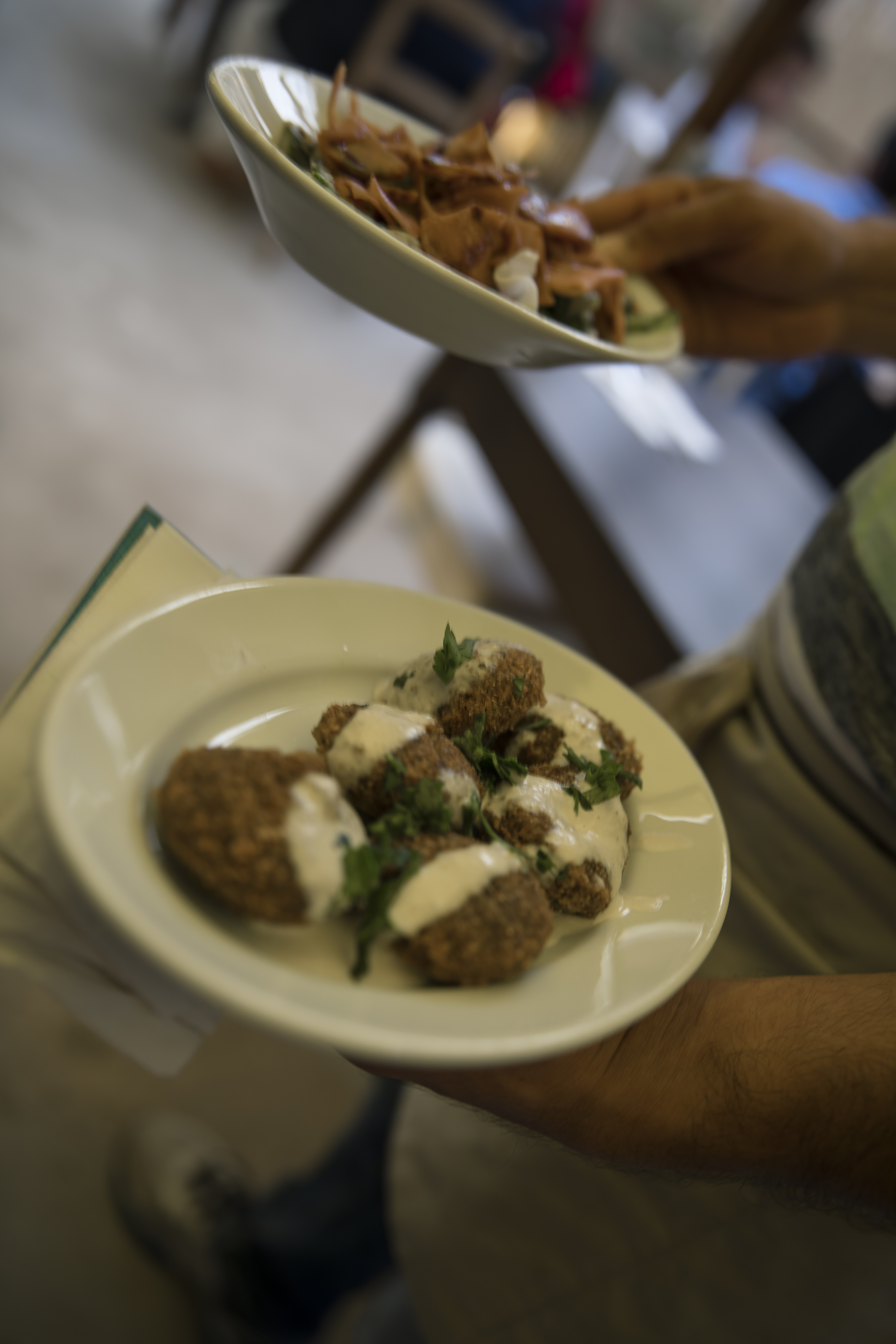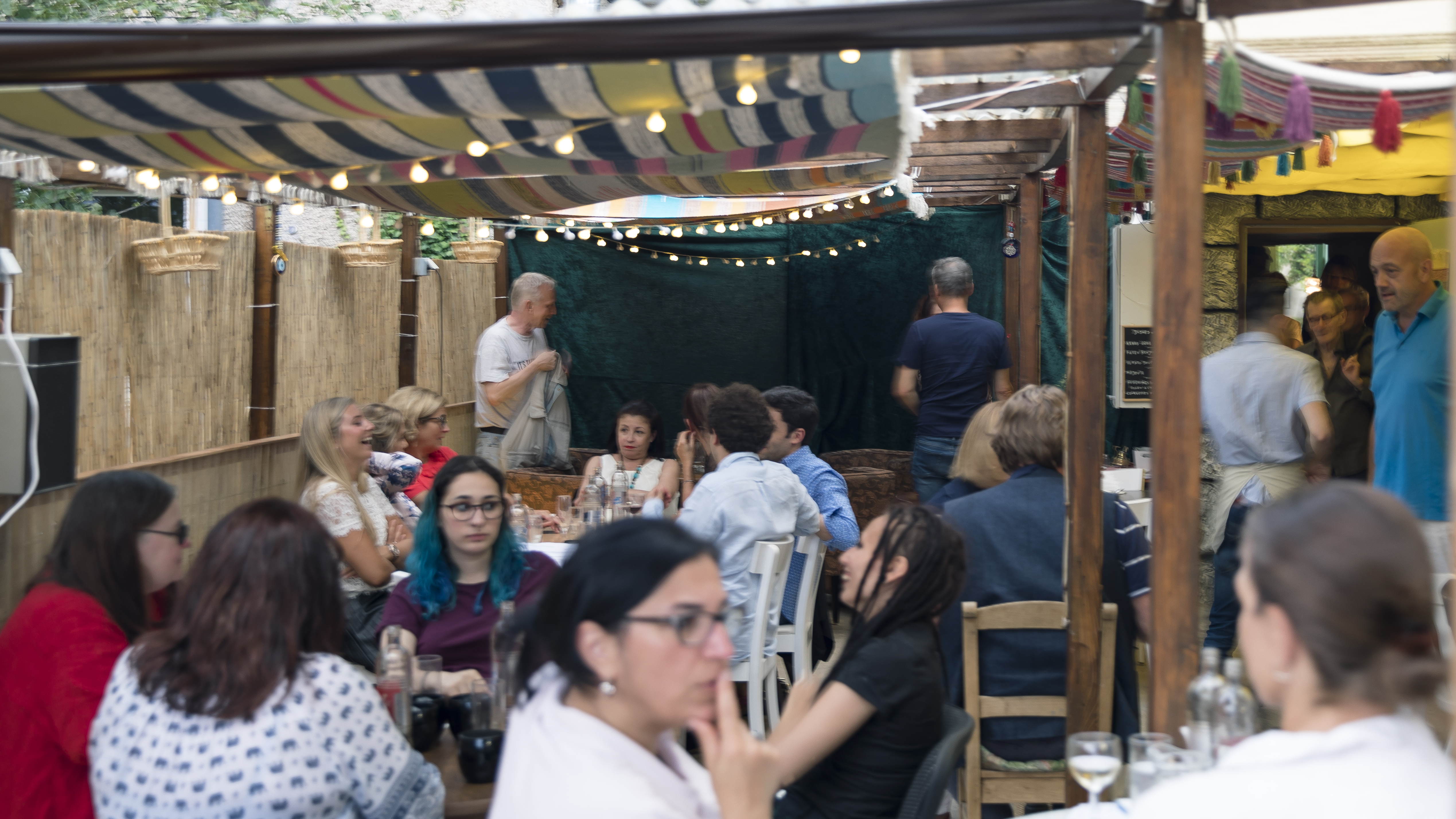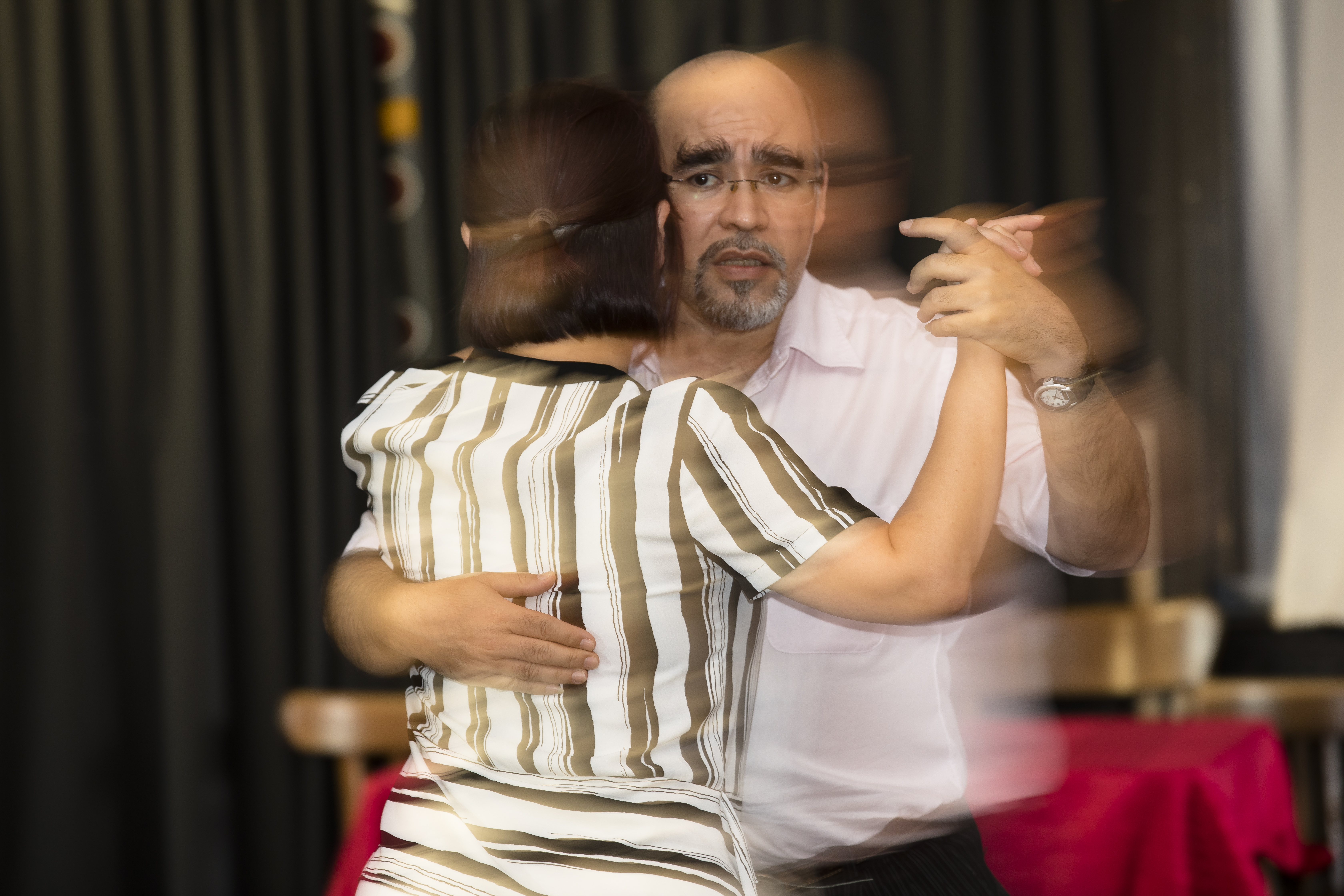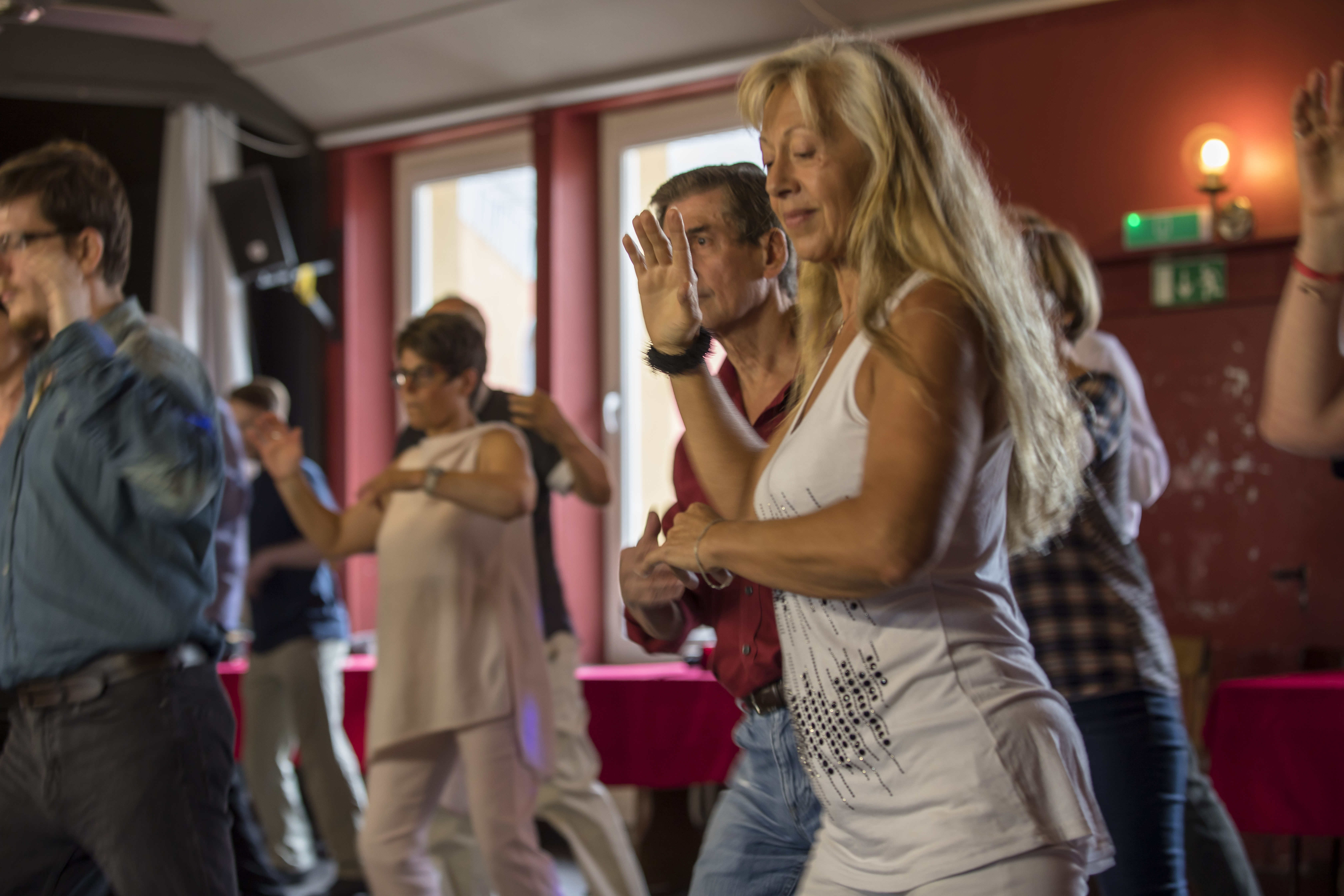Microlux gives socially excluded people in Luxembourg a chance to run their own businesses.
On the Luxembourg restaurant scene, the hottest booking is Syriously, an oriental restaurant opened in May by a Syrian refugee named Mahmoud Al Fayyad. After a year working at a pharmacy, Mahmoud Al Fayyad heard about a local microfinance firm, microlux. “I have always been a passionate cook”, he thought. “Why not give it a try. After all, cooking is an excellent bridge to share one’s culture”.
At Syriously, all the food is homemade by Syrian refugee women. The restaurant seats 100 people in a house donated for a symbolic EUR 1 by a property owner who met Mahmoud through the Luxembourgish Red Cross. It’s often fully booked for its two evening services. Mahmoud offers Aleppo specialities like bulgur, kibbeh, hummus, tabbouleh, fatousch, labaneh, shawarma, mujaddara, shanklish, pastırma, sucuk and baklava for very reasonable prices.
“I used the money to transform this old house into a proper restaurant. I am now employing eight people and given the business is going well, I decided to reimburse the credit in two years”, says the new entrepreneur. “This microcredit helped me to start a new life and contribute to the economy of my new homeland. I am very grateful to all the people who trusted and supported me right from the beginning”.

Mahmoud sees cooking as an excellent bridge to share the culture of his country.
Job insecurity and poverty
For people living in Luxembourg who are in a delicate financial situation, it is often impossible to access traditional bank credit. That said, since March 2016, microlux, a microcredit institution supported by the EIF thanks to the EU’s Programme for Employment and Social Innovation (EaSI), has been giving hope to such entrepreneurs.
Although Luxembourg is a rich country with strong growth, it does contain pockets of job insecurity and poverty, mainly concentrated in the south – a region with high unemployment. And although Luxembourg spearheads the promotion and diffusion of microfinance around the world, no local microfinance institution previously targeted Luxembourg itself. To tackle this problem, microlux was created in March 2016.
Within the European Union, over the period 2007-2013, 52 000 people in 23 countries received assistance. “In the period 2014-2020, the EIF’s goal is to help 85 000 beneficiaries. And we are already up to 19 500”, says Roger Havenith, Deputy Chief Executive of the Fund.
In Luxembourg, the EIF estimates the potential number of loan applications to be 400 over five years. And it says that it is ready to support microlux if this figure is exceeded. Karin Schintgen, who represents the main shareholder BGL BNP Paribas within microlux, alongside ADIE and ADA, says: “This engagement is directly in line with the policies of our banking group, which is heavily involved in microfinance and social entrepreneurship. Ignoring these people would be a mistake: in Europe, 30% of new micro and small businesses are started up by people without jobs”.
Microlux provides loans of a maximum amount of EUR 25 000 and with a maximum term of four years. “The average loan is EUR 12 000”, say the firm’s two managers Jérémy Del Rosario and Samuel Paulus. To get one, you have to present a project “with potential” that creates jobs.

Syriously is fully booked most days of the week. Be sure to book well ahead if you want to try Mahmoud's delicious cuisine.
Rodolfo shares his passion for Tango thanks to a microloan

Rodolfo Aguerrodi, now a teacher of Tango at the Dance factory, the company that he set up partly with the help of a EUR 10 000 microloan from microlux.
“My father and grandfather were locksmiths in Buenos Aires, so I suppose I should have taken over the family business” says Rodolfo Aguerrodi, now a teacher of Tango at the Dance factory, the company that he set up partly with the help of a EUR 10 000 microloan from microlux.
But he wasn’t always so passionate about this emblematic dance. Although Argentinian, born in Buenos Aires, he admits that he was more a fan of the Rolling Stones when he was young. “Just like not all Japanese people practise Karaté”, he started out studying traumatology and kinesiology – which he quickly gave up. After a sabbatical year, he began studying business administration and subsequently spent a large part of his career in a major shipping company. It was there that he built up his management experience – by chance discovering Tango, with which he gradually “literally entered into a symbiotic relationship”. After six years of intensive training and lots of travelling around the world, he put down his bags in Luxembourg, where he has now been living for three years.
“I started out giving classes in the clubs of the European institutions, but I soon felt that there was a need to make the discipline more professional” Rodolfo tells us. So in August 2016 he launched his small business in the former premises of the Democratic Party, only getting a loan from microlux in February the following year, having learned about the institution by word of mouth.

As well as Tango, Rodolfo's academy offers, among other things, ballet classes for children (6-8 years) and very young children (3-5 years) every Saturday morning.
A helping hand
With several months of trading, company management experience and numerous contacts in the business, the maestro’s loan application was quickly approved. “The EUR 10 000 enabled us to refurbish the premises, buy sound equipment, change all the lights and thereby reduce our energy consumption by 80%” says Rodolfo proudly. “Now we are repaying EUR 258 a month, which is reasonable considering what we do. We could have carried on working without the loan, but it enabled us to get our head above water and concentrate on our core business”.

As well as Tango, Rodolfo’s Dance Factory offers all sorts of dance classes: Bachata, Salsa, oriental dance, ballet, African dance – and yoga and pilates are on the menu too.
A social tool
And it is a stunning success: Rodolfo employs eight teachers and has a full house almost every day of the week. “We have forged ties with lots of cultural associations in the Grande Région and we also offer dance classes as therapy to treat Parkinson’s and Alzheimer’s disease or to help young people become included in society”.

Rodolfo’s Tango classes attract lots of “aficionados”. Up to 47 people can have fun in his two studios – whatever their level.
If there was ever any doubt about the need for a microcredit offer in Luxembourg, microlux has demonstrated that demand definitely exists. So far, microlux has met more than 100 entrepreneurs and project promoters. 30 of them have had their loan application approved by the credit committee. “For many of them, we represent a second chance”, Jérémy Del Rosario and Samuel Paulus point out. As well as credit, microlux offers its customers support. “Upstream we help them structure their projects, and downstream we lend them a hand in areas as varied as bookkeeping and marketing”. They are also supported by a network of some fifty volunteers with a wide range of expertise and specific training.
